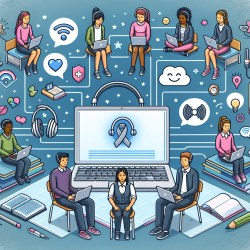Introduction: The Importance of Effective IEP Planning
As government health regulators, you play a crucial role in ensuring that children with special needs receive the best possible education and support. Individualized Education Program (IEP) planning and meetings are fundamental to achieving this goal. But how can we make these meetings more effective, inclusive, and productive? The answer lies in leveraging data-driven decisions and embracing innovative solutions like online therapy.
Data-Driven IEP Meetings: Why They Matter
IEP meetings are a collaborative effort involving educators, therapists, parents, and often, the students themselves. Data-driven decisions can transform these meetings from routine check-ins to powerful planning sessions that truly cater to each child's unique needs. By analyzing data on student progress, therapy outcomes, and educational goals, teams can create more targeted and effective IEPs.
The Role of Online Therapy in IEP Planning
Online therapy, or telepractice, is an emerging field that offers flexible and accessible solutions for students who require speech and language services. With telepractice jobs on the rise, schools have the opportunity to incorporate these services into their IEP plans. Here are some benefits of online therapy in IEP planning:
- Accessibility: Online therapy removes geographical barriers, making it easier for students in remote areas to receive consistent and high-quality services.
- Convenience: Scheduling is more flexible, allowing sessions to fit into students' and families' busy lives.
- Data Collection: Digital platforms facilitate the collection and analysis of data, providing valuable insights into student progress and areas that need improvement.
Next Steps for Government Health Regulators
As leaders in health regulation, you have the power to influence the adoption of innovative solutions like online therapy in schools. Here are some steps you can take:
- Advocate for Policy Changes: Support policies that recognize and integrate online therapy as a viable option in IEP planning.
- Encourage Collaboration: Promote collaboration between schools, therapists, and families to ensure a comprehensive approach to IEP development.
- Invest in Training: Ensure that educators and therapists are trained in the latest telepractice technologies and methodologies.
Conclusion: A Call to Action
By embracing data-driven decisions and innovative solutions like online therapy, government health regulators can help create better outcomes for children with special needs. It's time to take the next step in revolutionizing IEP planning and meetings, ensuring that every child receives the personalized support they deserve.










